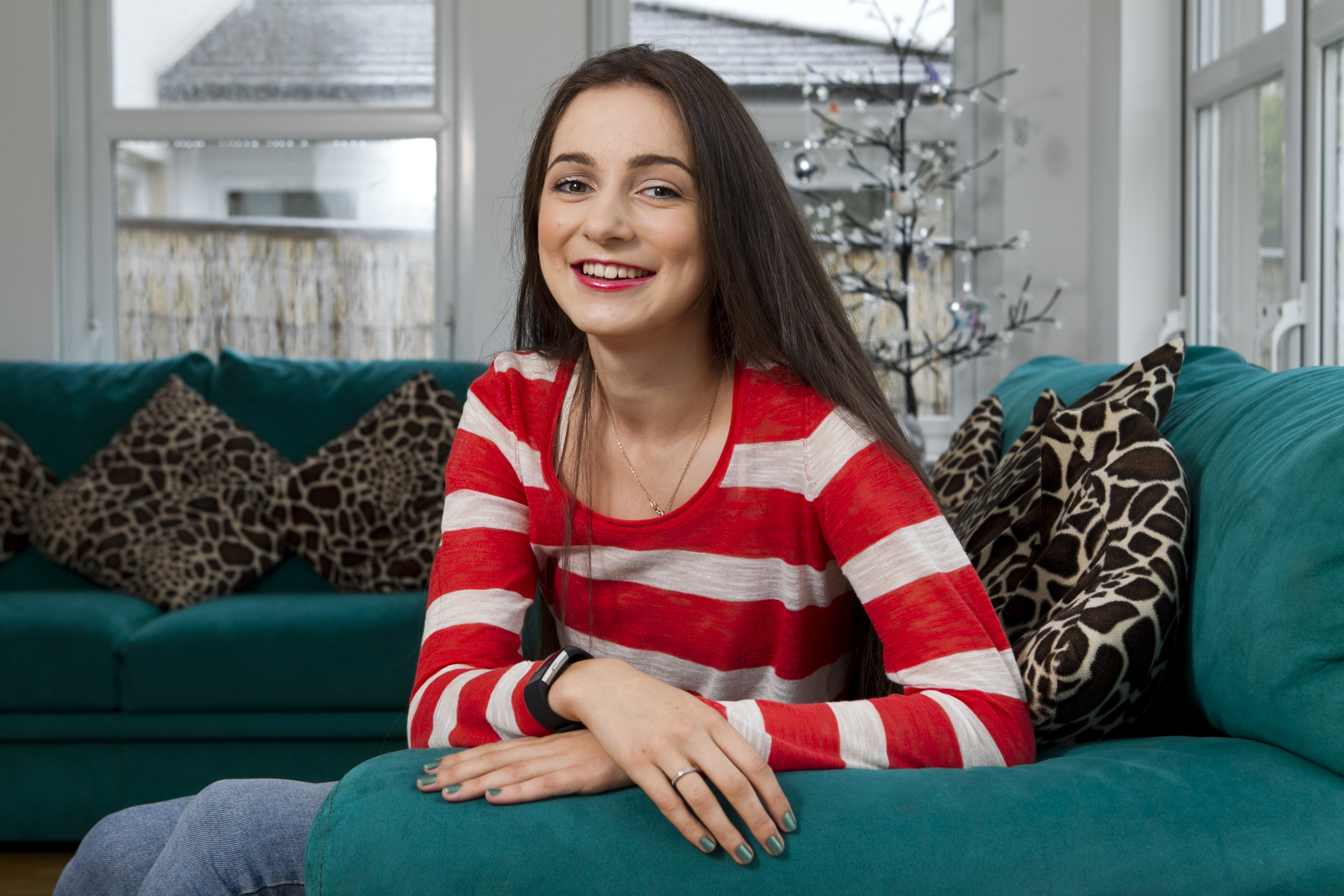
LIKE thousands of other school leavers, Selina Pitt will soon begin the next chapter of her life at university.
The 17-year-old is looking forward to studying French, Spanish and Italian in a five-year course at Glasgow University, but it’s not just the tough curriculum she has to contend with.
The teenager from Irvine, Ayrshire, also has a little-known genetic neurological disorder called Charcot-Marie-Tooth (CMT), which can cause uncontrollable pain and chronic fatigue, as well as deformities in the hands, lower legs and feet.
She was diagnosed in 2015, but had previously spent many years going to doctors trying to find out what was causing numbness in her limbs.
Now that Selina’s condition – which is steadily progressive – has been established, she is determined to not only make the most of life but also raise awareness of CMT.
“Right now I can do everything I want to do,” she said. “It might progress in the future, but I try not to worry about that.
“It was a relief more than anything when I was diagnosed, but if more people knew about it then it would have been spotted sooner. By raising awareness more people will be diagnosed, because there are thousands walking around without a diagnosis right now.”
Saturday marks the beginning of CMT Awareness Month, with one of the aims to make more medical professionals cognisant of the condition.
“I went to quite a few doctors with a number of symptoms, but it wasn’t picked up that there was a link,” said Selina. “The main one was high arched feet which causes pain. I began feeling that when I was eight or nine.
“I really started noticing an issue when I was 12. I felt numbness in my legs from sitting too long or walking too much and my parents became really worried.
“I went to a podiatrist and had insoles made for support.
“While I was there I mentioned the numbness in my legs but it wasn’t felt the issues were connected.”
It was two years later, while Selina was seeing a physiotherapist, that her mum mentioned a bulge in her daughter’s back.
The physio said it was scoliosis (curvature of the spine) and referred her to a spine specialist.
She was then referred to a neurologist, who suspected CMT, and nerve conduction tests confirmed it.
Immediately the family became members of the Charcot-Marie-Tooth UK charity, which has provided lots of information and support.
Selina learned that she was born with the condition and, in retrospect, parents Philip and Lilia can see the signs were always there.
She was clumsy as a child and was almost two before she began walking. When she did, it was somewhat differently to other children.
But Selina doesn’t let CMT rule her life. She achieved straight As in her exams and completed a four-week summer school at Glasgow University.
In addition, she plays clarinet in a concert band and is also a pianist.
“I do physio and exercises, which allows me to manage it,” Selina continued.
“Travelling to and from university is going to be a struggle, but I’ll just have to manage. I’ll catch the train and subway, rather than the bus, as that would mean sitting for too long.
“Doctors thought a mutation caused me to have CMT, but now they think my 12-year-old brother, Oscar, might also have it. If he does, it means either my mum or dad must have it, too.”
Around 25,000 people in the UK are currently known to have CMT, which is named after the three scientists who discovered it.
Although not life-threatening, it can impact and significantly reduce quality of life, with some people eventually having to use a wheelchair.
Selina recently climbed 2,866ft-high Goat Fell on the Isle of Arran to raise funds for the CMT Kids annual weekend and is hoping to tackle Merrick next. She has four more mountains in her sights, including Ben Lomond and Ben Nevis.
“Climbing Goat Fell was a big challenge for me, but I’m proud of the achievement,” Selina added.
“It’s about taking one day at a time and living life to its fullest,”she said.

Enjoy the convenience of having The Sunday Post delivered as a digital ePaper straight to your smartphone, tablet or computer.
Subscribe for only £5.49 a month and enjoy all the benefits of the printed paper as a digital replica.
Subscribe